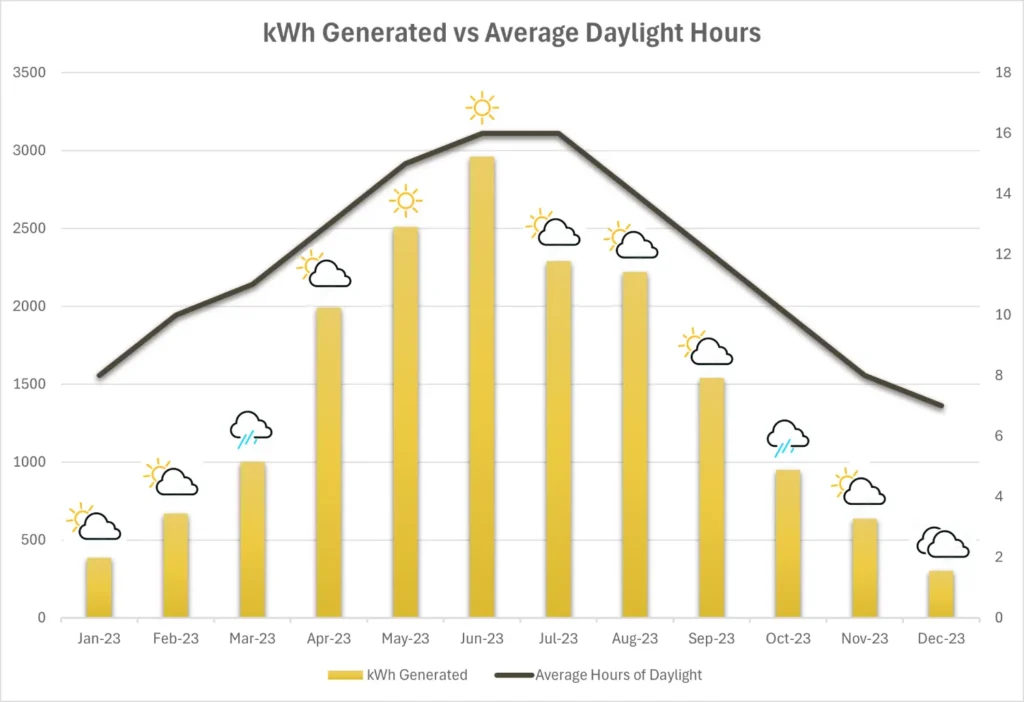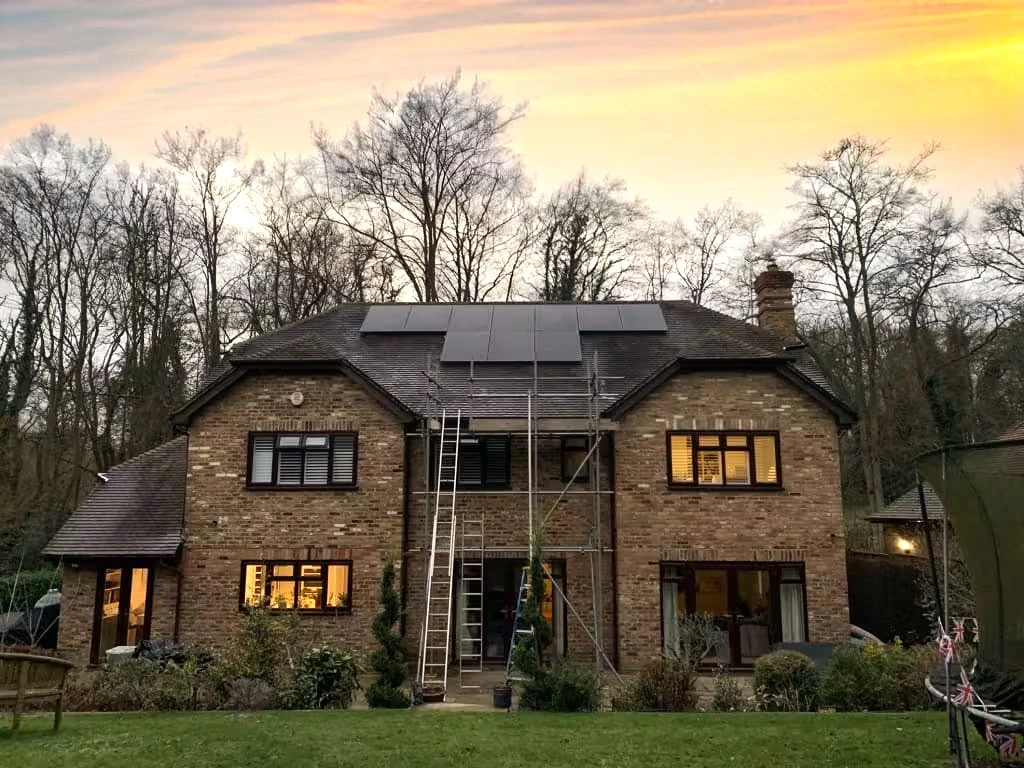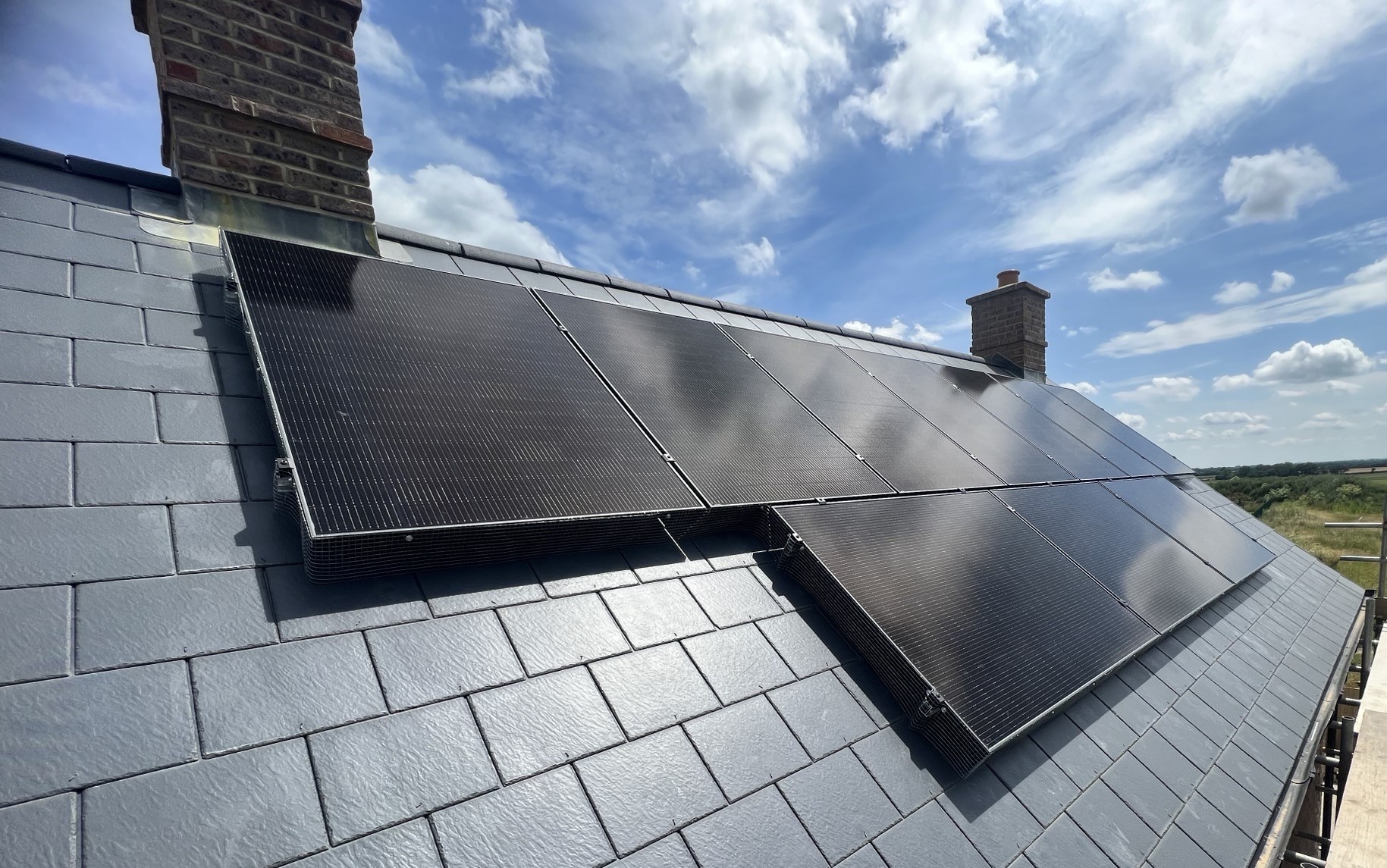Many people associate solar panels with sunny days and not the darker autumnal or wintry days that we will soon be heading into. Therefore, they may not consider installing solar panels in autumn or winter as they don’t expect them to generate energy. This however is a common misunderstanding and with the recent announcements for the Energy Price Cap increasing by 10% in October, you may be thinking of investing in solar panels to help reduce the impact of price rises. But don’t let the timing put you off, as solar panels can produce electricity all year round!
How do solar panels work?
Solar panels require daylight, not sunlight or heat to operate. When the electrons in the solar panel cells contact with light particles known as photons it causes them to move and become energised. This energy is transformed into an electrical current which is exported from the solar panel to an inverter to be converted into usable electricity.
The stronger the daylight the more electricity will be generated, so the peak output will be achieved when the sun is at its highest in the sky and brightest without any obstructions such as clouds. This is when the maximum amount of light photons can reach the solar panels. However, light photons are produced by daylight and as long as there is light there will be photons hitting the solar panels. So although it may not be as bright in Autumn and Winter, there is still sufficient daylight to generate electricity from solar panels.

So can solar panels work in cloudy weather?
Solar panels can operate on cloudy days, although as we can see above they won’t operate as effectively as they would on sunny days. However, as there is still daylight to produce light photons, there will still be solar generation. Depending on cloud density the solar panels can still produce 10-35% of their peak output as it is dependent on the amount of light that can reach the panels.
The rain in autumn and winter can also be beneficial to your solar panels in helping to clean them of any dust or dirt that might have been collecting on them over the summer months, therefore rain can assist in increasing their efficiency.
Will solar panels work in winter?
Solar panels work throughout the year in varying degrees of efficiency with less electricity being produced in the winter, this can be up to 80% less. This is because there is less daylight in winter as the days are shorter so they have fewer hours to generate electricity and the daylight is not as strong. There is also a greater chance of clouds impacting the amount of daylight reaching the solar panels.
In winter as well the temperature is lower and solar panels can run less efficiently in lower temperatures. There may also be days that are lost due to snow coverage, although the angle of the solar panels is designed to make snow slide off them and the residual heat of the solar panels assists with this.
If you are interested in installing solar panels on your home, contact us for more information. Or for a no-obligation quote, fill in our simple online form. We can talk through any questions you have and check your roof suitability as well as give you an idea of how much electricity you could generate and the savings you can make.





